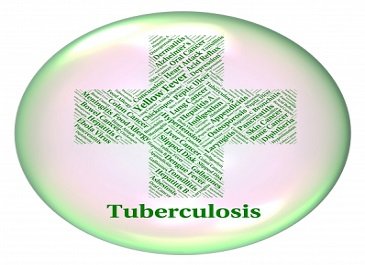'UP will not become TB-Free unless there is improved detection of MDR-TB'
February 22, 2016 | Monday | News | By BioSpectrum Bureau
'UP will not become TB-Free unless there is improved detection of MDR-TB'
These initiatives will be implemented by the Central TB Division
Call to Action for a TB-Free India participated at the 70th National Conference on Tuberculosis and Chest Diseases in Lucknow to bring Ministry of Health and Family Welfare, the International Union Against Tuberculosis and Lung Disease, TB Association of India (TBAI) and medical specialists engaged in the care and control of TB came together to review India's efforts in the fight against tuberculosis, a fatal disease that kills over 3 lakh persons in India every year.
Dr Sunil Khaparde, deputy director general, TB - Central TB Division, Revised National Tuberculosis Control Programme (RNTCP) announced five key initiatives to improve TB diagnosis and treatment in India under the Revised National Tuberculosis Control Program (RNTCP).
"As a step towards achieving the goals outlined in the post-2015 End TB strategy, significant progress has been made by India to control TB in the country under the Revised National Tuberculosis Control Programme (RNTCP), covering a comprehensive spectrum of interventions from enhanced access to TB care services to optimization of available tools, ICT interventions for delivering high quality health services and combating drug resistance thereby saving lives. We are launching a number of important new initiatives- the Daily Treatment Regimen pilot in 5 states under which TB drugs will be administered in fixed doses daily, replacing the existing three times a week treatment; 300 CBNAAT machines to conduct Rapid Molecular Tests for diagnosis of Drug Resistant TB; treatment of multidrug-resistant Mycobacterium TB through Bedaquiline; 3rd line antiretroviral therapy (ART) for HIV patients and daily DOTS regimen in HIV-TB patients; and the TB Missed Call Initiative, a helpline with a toll free number to provide information, counselling and treatment support services for TB," said Dr Khaparde.
These initiatives will be implemented by the Central TB Division, Ministry of Health & Family Welfare (MoHFW).
The government has also undertaken several other efforts to improve TB diagnosis and treatment in India- Nikshay, a web based solution for monitoring of TB patients; RNTCP modular training for state and district level program managers and trainers; and outreach campaigns for TB control in several cities. But, the incidence of TB in India is so wide and the challenges so complex that a collaborative, multi-stakeholder approach is needed to reduce the burden of TB in the country.
According to the World Health Organisation's Global Tuberculosis Report 2015, TB now ranks alongside HIV as a leading cause of death worldwide. India carries the largest burden of tuberculosis with 23% of all TB cases in the world. The direct and indirect cost of TB in India stands at $23.7 billion annually1, inflicting suffering, debt and continued poverty on individuals and families.
TB Scenario in Uttar Pradesh
According to the 2015 Annual Status Report on TB published by the Central TB Division, Ministry of Health and Family Welfare, 17 per cent of TB cases under the Revised National TB Control Program (RNTCP), the state-run tuberculosis (TB) are from UP alone. The report also indicates that in 2013, there were over one lakh new TB cases registered in UP.
The magnitude of tuberculosis in UP is large- there were close to 13 lakh suspected TB cases in 20142 and this calls for increased action to manage TB and prevent it from turning drug resistant. UP can make progress by focusing on the following:
Engaging private sector: Private sector is a critical stakeholder of TB in India. Over 60 percent of all Indians seek care in the private sector, where evidence suggests that quality of care is suboptimal and reporting of data is low. In 2014, only 2.2 TB cases per 1,00,000 were notified by the private sector in UP2.
Migration: Drug resistance rates are also proportionally higher amongst migrant labourers who are least likely to seek treatment and frequently evade existing government TB treatment programmes. Migrant workers are often unable to access diagnosis and treatment in the public sector because they lack proof of identity or access to quality services in the private sector. Out-migration is high in UP, so there is a need to increase case detection and ensure treatment adherence across state borders.
Need to improve access to quality treatment for TB: For a large population spread across 75 districts in UP, there are only 482 TB units2, which is very low.
Need for capacity building among health providers: Only 6 out of 10 medical officers in UP are RNTCP trained2 indicating that the state is not adequately equipped to manage its TB burden.
The Revised National TB Control Program (RNTCP) has made progress in TB control. However, increased resources, greater innovation and political support are needed to fast-track progress, especially for MDR-TB.
Ms Kavita Ayyagari, project director - challenge TB, the union, noted, "The government, political leadership, corporates, private health practitioners and hospitals, media, civil society organizations (CSOs) and NGOs need to collaborate and leverage each others' strengths to improve outcomes for TB patients in India. We can substantially scale-up our efforts by pooling our resources and expertise and will build inroads into otherwise difficult to reach areas and population. The collective impact of our comprehensive measures will be greater and we'll reach our goals faster."
Taking stock of India's efforts in the fight against TB, Dr Khaparde added, "The world is looking at India to take important steps to address issues associated with TB prevention, early diagnosis, access to treatment and preventing drug resistance. We will lead with bold policies and deliver integrated, patient-centred care and support with strengthened research and innovation to make TB Free India a reality."









